The new M4 Max-powered 16-inch MacBook Pro is a beast of a machine, that highlights the raw power and efficiency of Apple Silicon.
The latest MacBook Pro update arrived in November, alongside multiple other Macs. We similarly got a new M4-powered iMac and a completely redesigned Mac mini.
Looking at the MacBook Pros specifically, they come in both 14- and 16-inch versions. You can get the 14-inch in M4 and M4 Pro versions and the 16-inch with the M4 Pro or M4 Max.
We're looking at the Space Black 16-inch MacBook Pro with the M4 Max processor and its 40-core GPU. It has 1TB of storage and 64GB of unified memory.
16-inch MacBook Pro M4 Max review: Internals and ports
Much of this machine is the same as before. The design is unchanged on the outside, other than that the base M4 model can now be obtained in the Space Black colorway that's become so popular. We still wish it was a bit darker.
 16-inch MacBook Pro M4 Max review: The left side has MagSafe 3, Thunderbolt 5 ports, and an audio jack
16-inch MacBook Pro M4 Max review: The left side has MagSafe 3, Thunderbolt 5 ports, and an audio jackAs you face it, on the left of the machine is a MagSafe 3 port for charging at up to 140W, saddled by two Thunderbolt ports and a 3.5mm audio jack. The right has an SDXC card reader, another Thunderbolt port, and an HDMI connector.
You get Apple's excellent built in keyboard above the still-spacious glass trackpad. Years later, Apple's trackpad is still unmatched by the competition.
The display is 16.2-inches on the diagonal and measures 3456 by 2234 in resolution. It looks beautiful, has 1000 nits of typical brightness, ProMotion up to 120Hz, supports the P3 wide color gamut, and has TrueTone.
16-inch MacBook Pro M4 Max review: What's new this time around?
There are a number of improvements here, even if Apple kept the body the same. For example, the display's 1000 nit max brightness is 400 nits above where it was before.
That's particularly useful when outdoors, no matter if you opted for the glossy or the new nano-texture finish. Similarly, it can get dimmer too.
If you've ever worked into the wee hours or tried to use your computer in bed in the dark, you may have tried to turn your display brightness extremely low. Like the iPhone 16 line, it can now go as low as 1 nit.
We certainly work into the wee hours of the night, frequently. So, this, like it was on the iPhone, has been a surprisingly useful feature.
Not everyone is going to need this and it's not really that heavily promoted by Apple. For us, though, it's so helpful and more comfortable on our eyes.
Also on the display is a beefed up camera hiding in the notch. It's now 12MP and supports Desk View. Video is still capped at 1080p though.
Even if you don't use Desk View, the higher resolution and improved M4 ISP is welcomed and we were shocked at how much better we looked. We did a side-by-side with our M3 Max MacBook Pro and it was drastic.
The photo was richer with more contrast and better colors. It frankly makes the camera much more usable for processional applications.
Thunderbolt 5 will be a standout feature — eventually
After we got our first look at Thunderbolt 5 prototype devices at CES 2024, we're finally seeing the first cables and docks coming to market.
It's capable of 120Gb/s of aggregated data which is up to three times that of Thunderbolt 3 or Thunderbolt 4. There aren't many devices now, but we're going to see many over the lifespan of this machine.
When buying a Mac that you plan to use three, five, or even ten years you want it to support the latest technology. That's what this offers.
It'll make more of a difference when there are more peripherals available. At the time of writing, only a few things have been announced.
One thing we didn't get here was Wi-Fi 7 and we're sorely disappointed. This is the one upgrade we expected to get and didn't, purely based on the new wireless standard being finalized earlier this year. The iPhone 16 series also already supports it.
Once more, when you want a machine that will last, you want the latest standards and it's frustrating to see that omitted here. We'd prefer it on our Macs versus our iPhones.
16-inch MacBook Pro M4 Max review: Nano texture display
Filed under "new changes in 2024" for the MacBook Pro is an optional nano texture finish. It's similar to what the iPad Pro, iMac, and Studio Display offer.
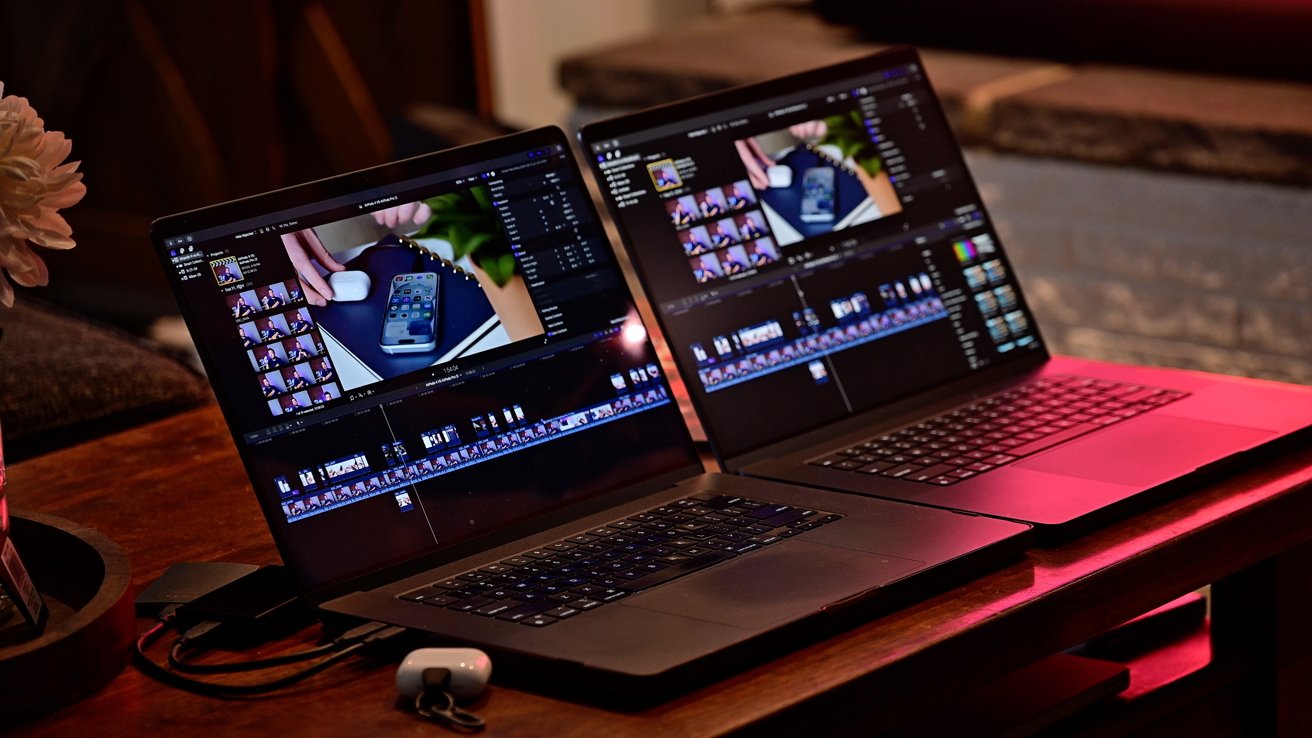 16-inch MacBook Pro M4 Max review: Trying to flash a light at the glossy (left) and matte (right) finish options
16-inch MacBook Pro M4 Max review: Trying to flash a light at the glossy (left) and matte (right) finish optionsWe're not going to get into it again, given that this isn't Apple's first product with it. In short, it reduces glare and the impact of bright lights on the display. This diffused light, in our experience, makes the screen even better.
There will be debate on what's better for color-specific workflows like video color grading or professional editing in Lightroom and Photoshop, but for us, it makes sense. Side by side, the color difference is minimal.
If you are worrying that much about the color representation, a dedicated reference monitor may make more sense. With a laptop, the idea is to be portable and the nano texture affords that.
The only downside is that because of the diffused light, it does appear slightly dimmer in certain environments. That's a worthwhile tradeoff though because we'd usually have to crank the brightness to battle the glare.
When outside and the brightness cranks up to that 1000 nit level, that difference goes away and the new model looks just as bright as the older one. It also has great viewing angles, which is a plus.
In all the environments we tested, the nano texture looked better. Even the clarity loss is minimal and we'd happily pay the $150 upgrade cost.
Funny enough, the nano texture also kept out display cleaner. It still showed some oils, but overall looked and stayed cleaner than the normal glossy one.
We've disliked the traditional anti-glare screens found on PCs and it's clear why Apple waited for a more suitable technology before introducing their own Mac-specific version of it.
16-inch MacBook Pro M4 Max review: Performance
Here, we're testing the M4 Max 16-inch MacBook Pro which is a 16-core CPU with 12 performance cores and 4 efficiency cores.
That's the same breakdown as the M3 Max. It's now faster though, increasing the clockspeed from 3.68GHz to 4.5GHz.
In terms of benchmarked performance, Geekbench 6 is showing us a 25% boost in the single core performance. We also saw a 30% boost in the multi-core performance.
The Metal graphics test was a little more modest, going to 189752 from 163927. That's about a 15% increase for that 40-core GPU.
Putting these numbers into perspective, the M4 Max easily outperforms the M2 Ultra CPU. That shouldn't be a huge surprise since we never got an M3 Ultra chip to compare with.
Perhaps even more impressive, the M4 Max is also comparable to the GeForce 4080 super GPU in some workloads. That's a huge, desktop graphics card that has similar performance to a laptop.
We wanted throw something different at the new machine in our testing, which was perfectly timed with Apple's new update to Final Cut Pro.
One of the new features to that is Magnetic Mask, which is one of the more computationally intensive video tasks we do, outside of 3D motion graphics. It uses AI to track a subject, masking out the background without the need for a green screen.
We applied it to a 12 minute 4K 24FPS video and it took 14 minutes and 27 seconds to complete. On the M3 Max model, it took a minute and 32 seconds longer.
Overall it's about a 10% boost in that performance. That's not a ton but on a longer or higher resolution project, that could amount to a serious time savings. Of course, higher-end workflows probably aren't using Magnetic Mask, but still.
For completeness sake, we ran Cinebench R23 on both our last-gen and current gen machines. The M4 Max achieved 27108 for the multi-core sore and 2237 for the single-core, compared to 21355 and 1816 for the M3 Max respectively.
That once more is showing about a 30% increase in multi-core performance. For a yearly update, that's a solid increase, and even more impressive compared to the exceptional M1 Max machine many still use.
This may be a big enough jump to encourage holdouts to make the jump to Apple's latest and greatest portable Mac.
16-inch MacBook Pro M4 Max review: M4 Pro is where it's at
While the M4 Max is an incredibly powerful chip, and also points to a mind-bending M4 Ultra release down the pike, the real story seems to be the M4 Pro.
Generationally, it's a bigger increase than its predecessor and at the rate of Apple Silicon, it's still more power than a lot of pro users will need.
Our most demanding workflow, multi-cam 4K video, is now barely taxing even for a base M4 processor. We'd be fine with an M4 Pro these days, even if we opt for the extra headroom and better performance the M4 Max offers.
Notably, the M4 Pro is up to a 14-core, two more than before, but also increased the performance cores from six to ten. We'd have been fine had Apple gave us just more efficiency cores.
Memory bandwidth also nearly doubled from 150GB/s to 273GB/s. It all amounts to an exceptional upgrade for the mid-tier chip.
Last year, the M3 Pro felt like we got slighted with a middling update. It gave users more of a reason to jump to the "max" variant.
This year, it feels like the M4 Pro is where it's at and unless you have an ultra-demanding workflow, it will probably keep up.
16-inch MacBook Pro M4 Max review: Should you buy Apple's new flagship portable Mac?
Not every year of Apple Silicon needs to be a monumental increase. This year it was probably above average for the M4 Max, between 20% and 30% for the CPU and less for the GPU.
Still, it's so impressive how much power Apple is able to pack into a laptop that is so incredibly portable. And unlike many Windows-based PCs, you don't see a massive performance dip when running on battery.
 16-inch MacBook Pro M4 Max review: Sliding the MacBook Pro into a backpack is easy, even at 16 inches
16-inch MacBook Pro M4 Max review: Sliding the MacBook Pro into a backpack is easy, even at 16 inchesThere's very little to criticize here as Apple has continued to refine and push the MacBook Pro line. There's the absence of Wi-Fi 7, but otherwise Apple knocked it out of the park.
It's powerful, fast, elegant, portable, and reliable. It's the machine we turn to most often to get work done.
The only reason not to buy the M4 Max 16-inch MacBook Pro is if you don't need this much power. In that case, the M4 Pro model is perfectly suitable.
Next year it's rumored we'll see a redesigned MacBook Pro that's even thinner and presumably adding Wi-Fi 7 and upgraded OLED displays. That's what's on the roadmap which will hopefully make any upgrade decisions easier.
This is a workhorse of a machine and would be a solid upgrade choice before jumping to a redesigned model in a few years, when Apple has any first-gen bugs worked out.
This is peak MacBook Pro. And we're here for it.
16-inch MacBook Pro M4 Max review: Pros
- Nano-texture display is incredible upgrade
- Performance of M4 Pro and M4 Max are both outstanding
- New camera is markedly better
- Peak design and performance of the portable Mac
- Thunderbolt 5 will be a game changer
- New minimum brightness is great for late night working
16-inch MacBook Pro M4 Max review: Cons
- No Wi-Fi 7
- Thunderbolt 5 accessories are still scarce to start
16-inch MacBook Pro M4 Max rating: 5 out of 5
Where to buy Apple's 16-inch MacBook Pro M4 Max at a discount
The 2024 MacBook Pro 16-inch is already on sale at numerous Apple resellers, with discounted prices starting at $2,199 in our 16-inch MacBook Pro Price Guide. Amazon has M4 Max models marked down to as low as $3,199 at press time, reflecting a triple-digit discount off MSRP.
AppleInsider readers can also save up to $300 on every CTO M4 MacBook Pro configuration with promo code APINSIDER at Apple Authorized Reseller Adorama. The same code takes $30 off three years of AppleCare for the 14-inch models and $40 off three years of AppleCare for the 16-inch MacBook Pro.
You can also find the latest 14-inch MacBook Pro deals in our Price Guides:
 Andrew O'Hara
Andrew O'Hara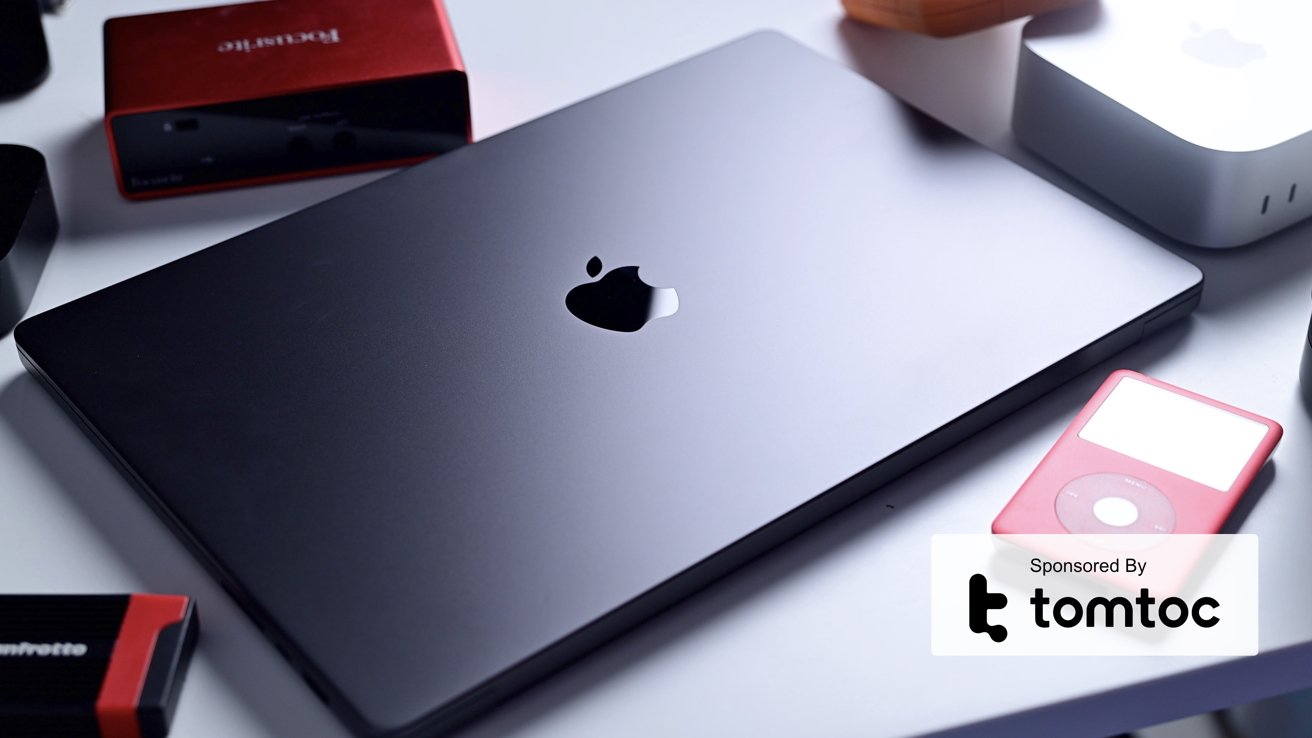



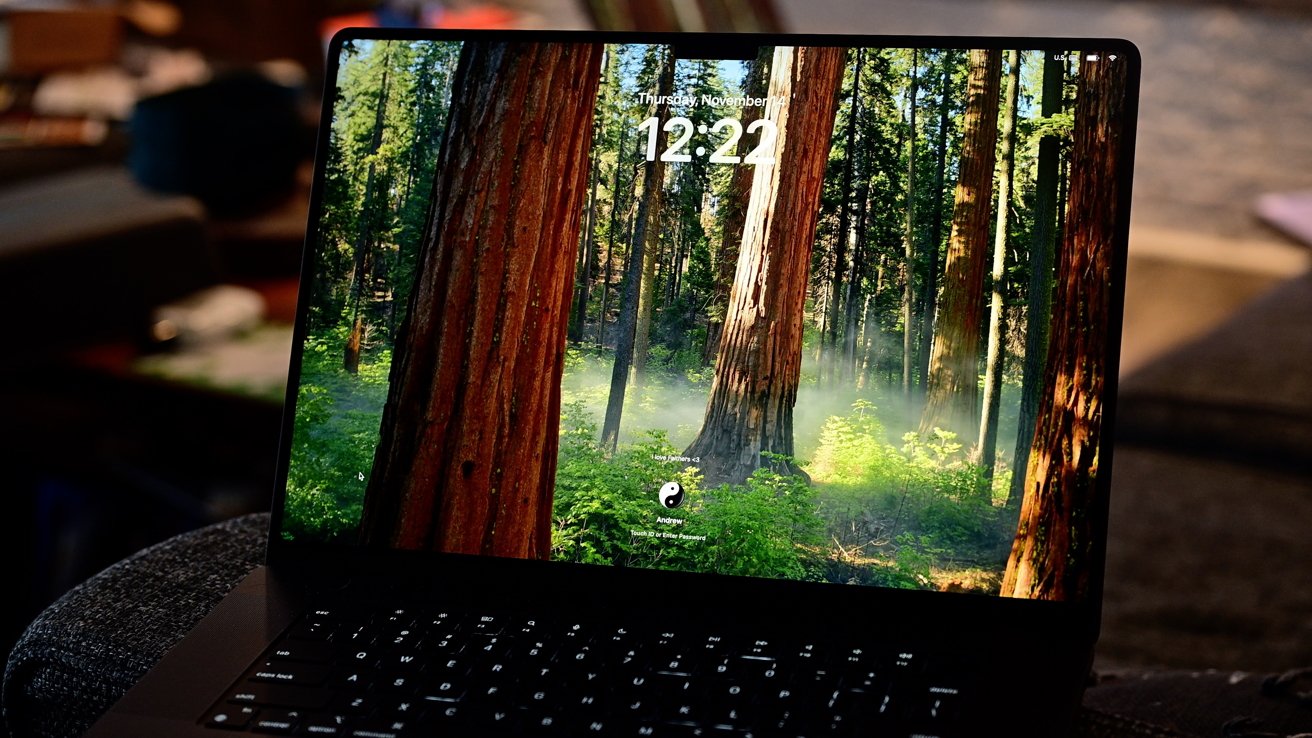
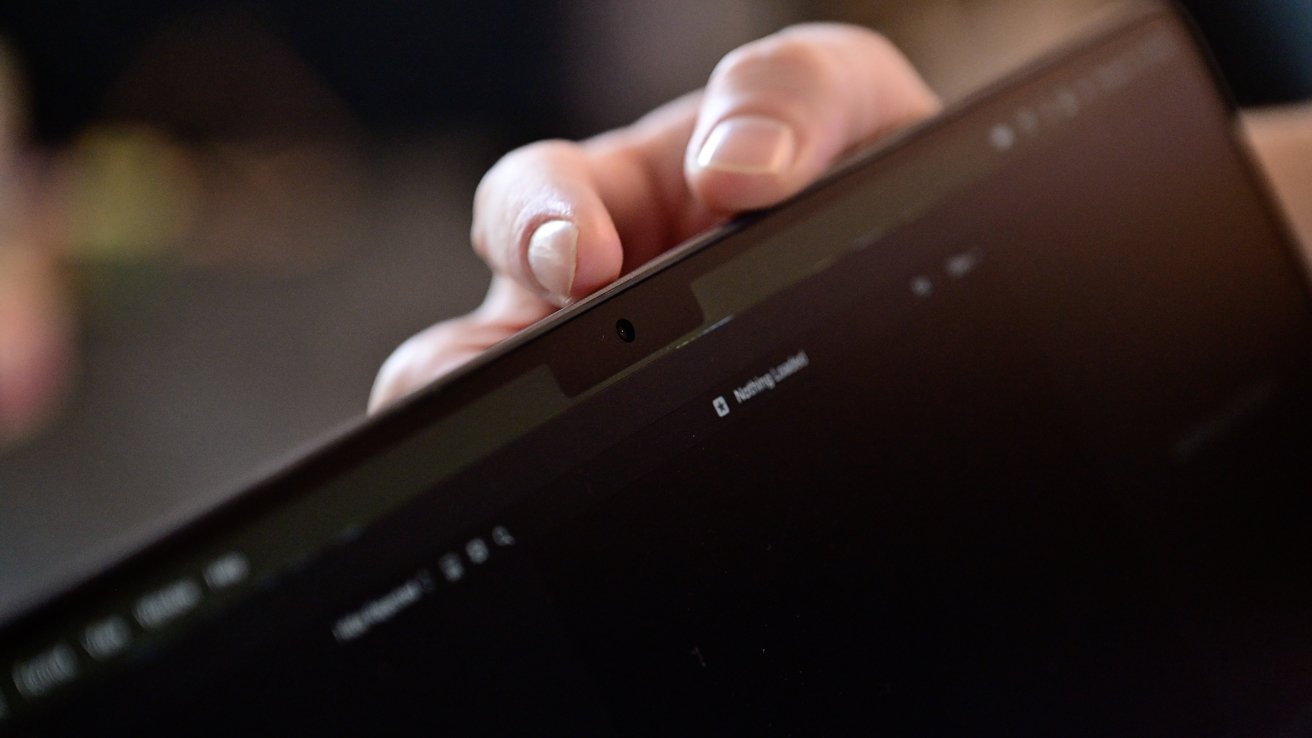
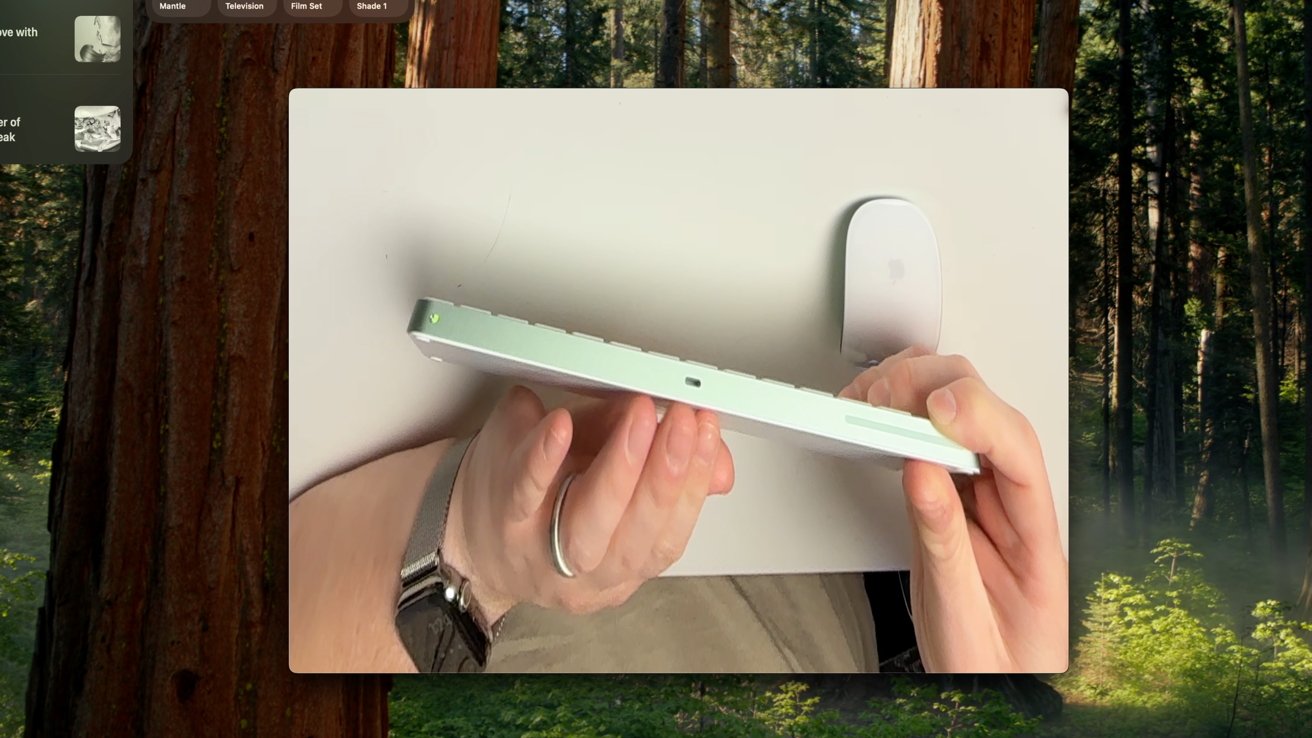

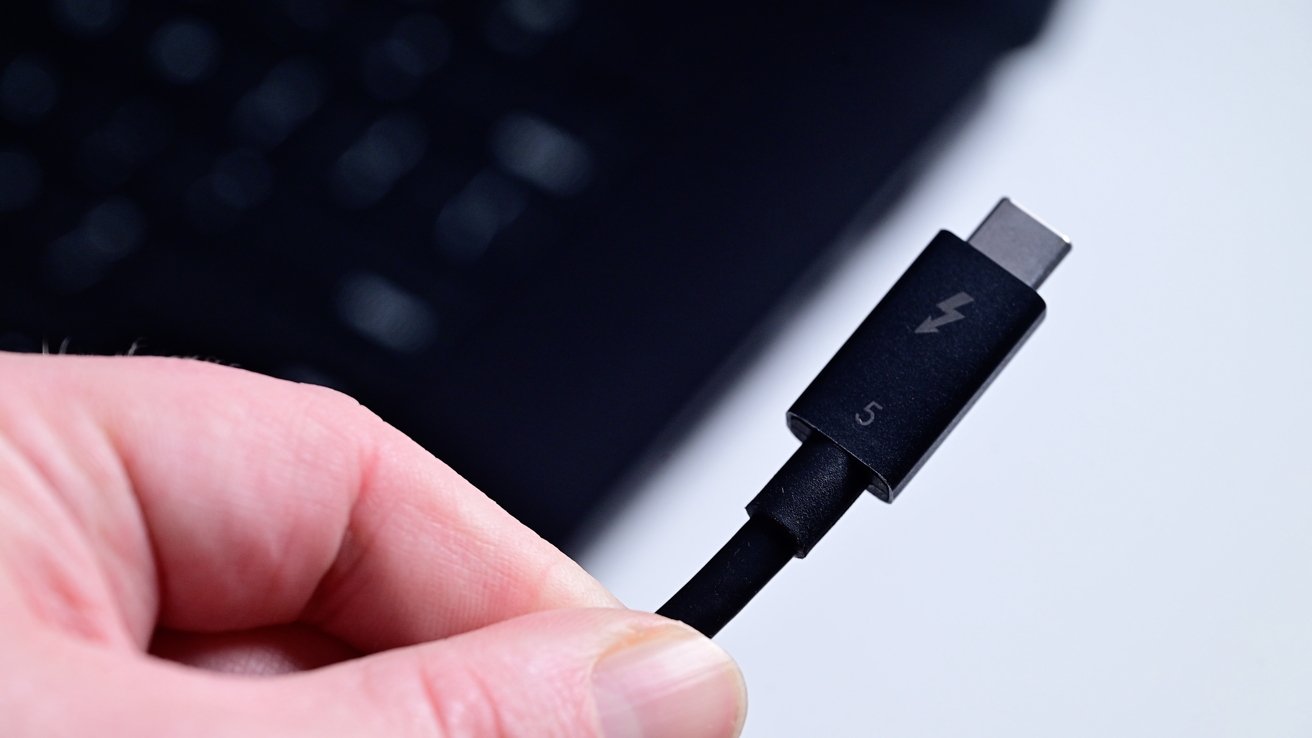

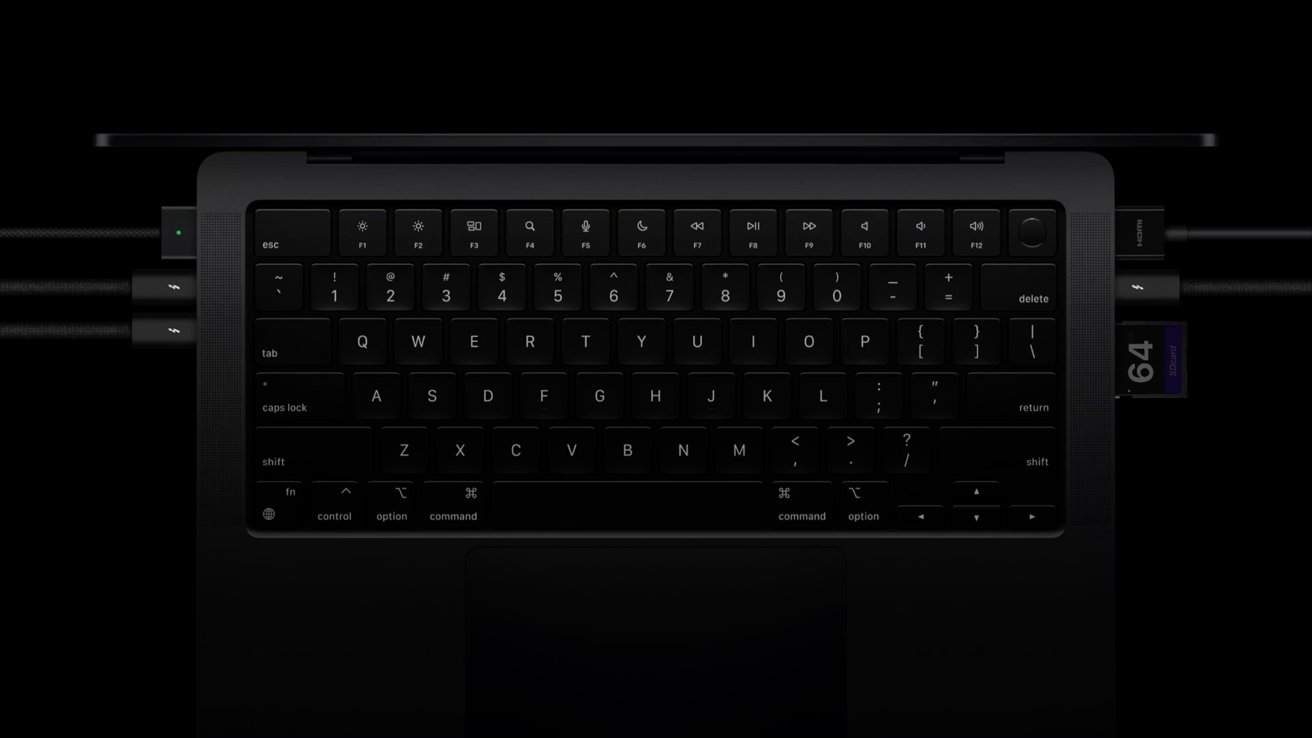
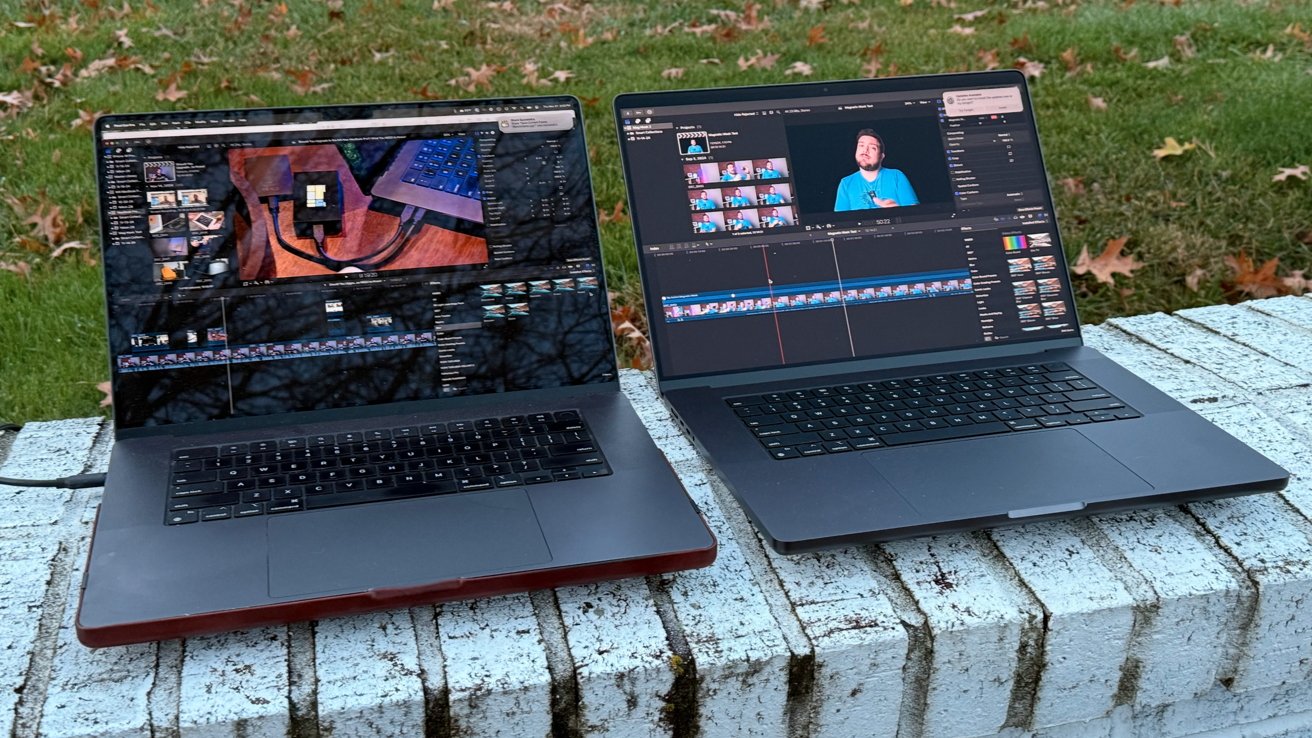
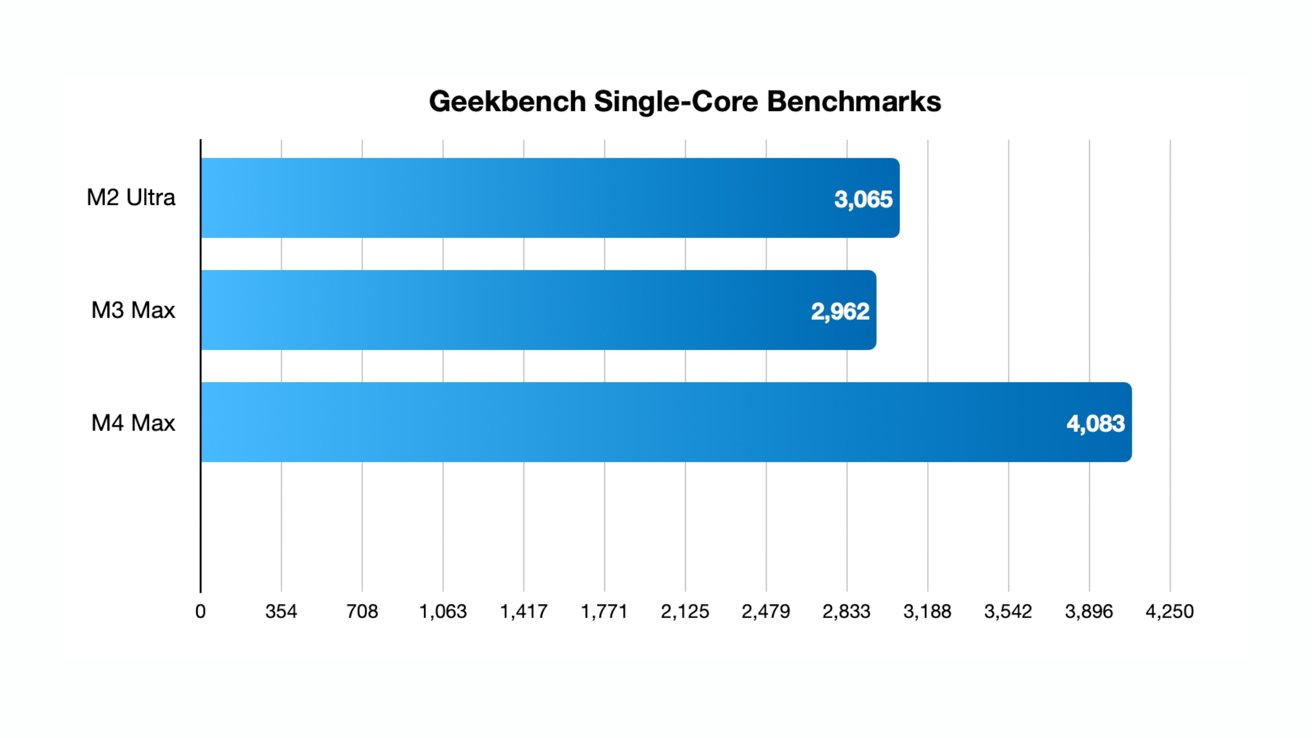
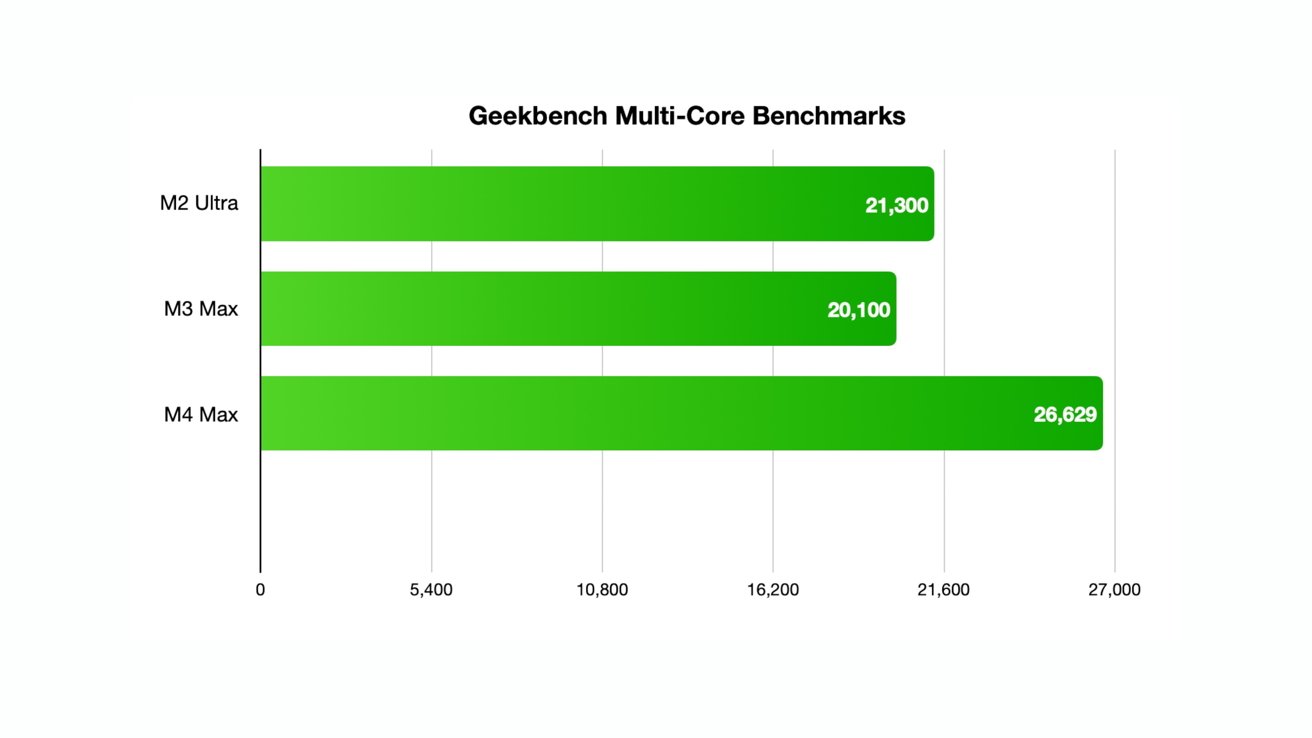
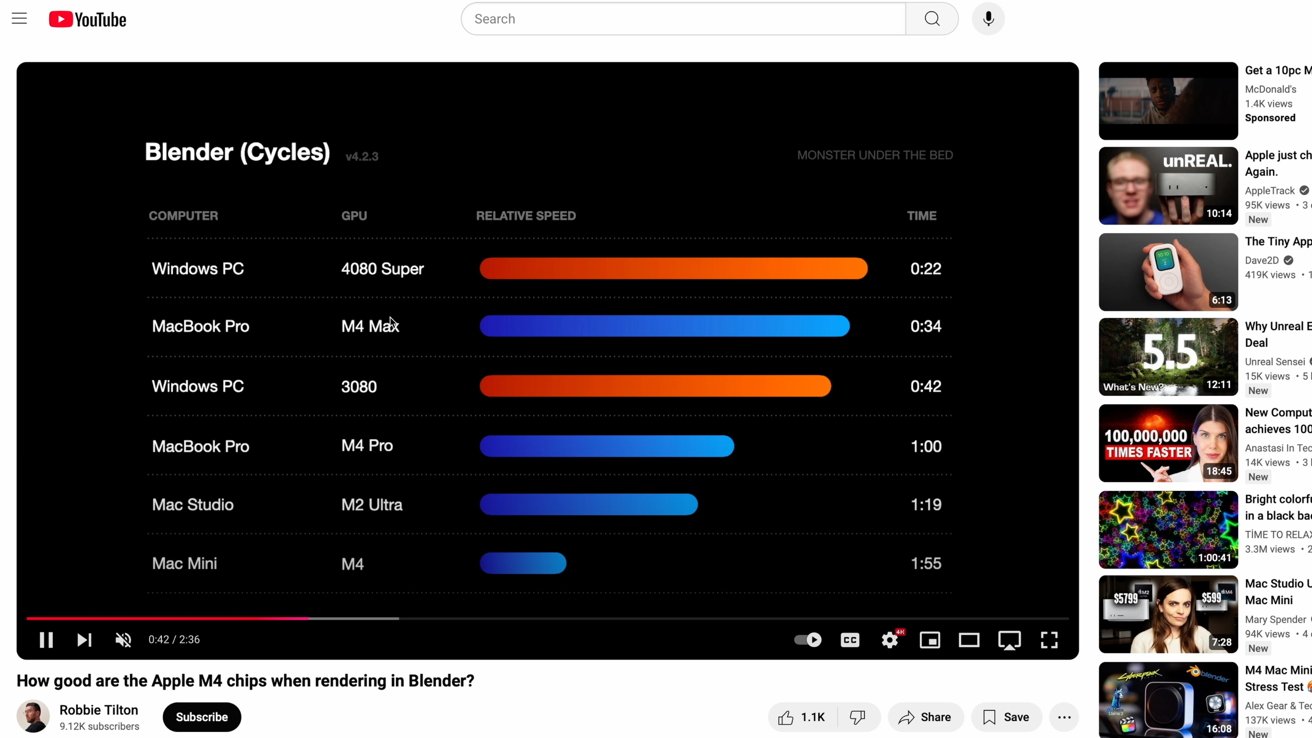

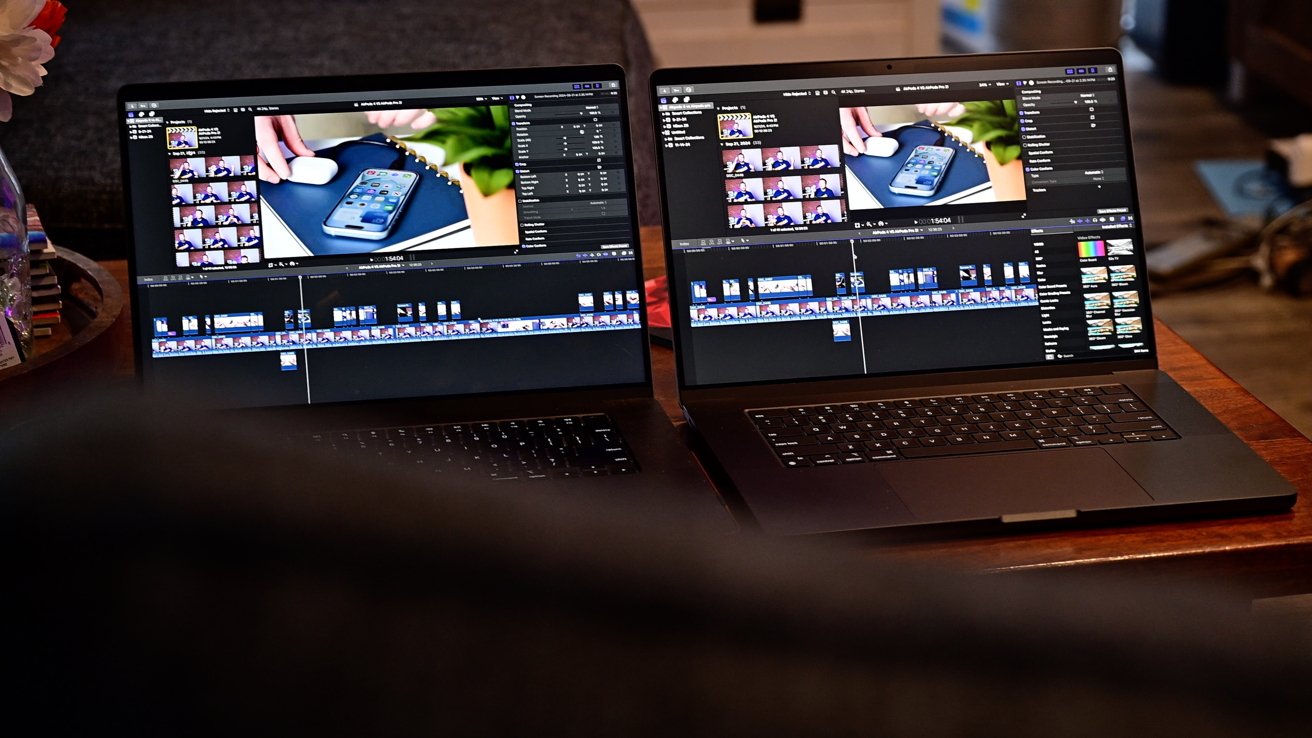
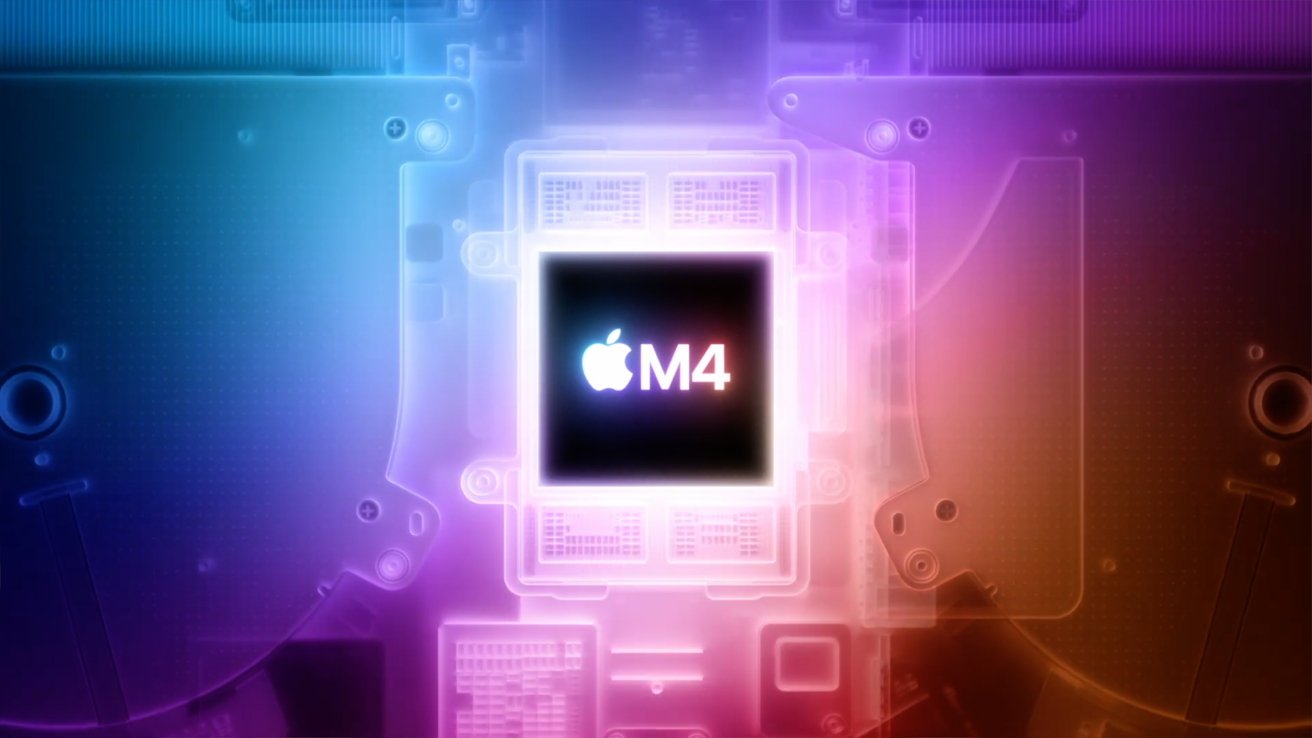
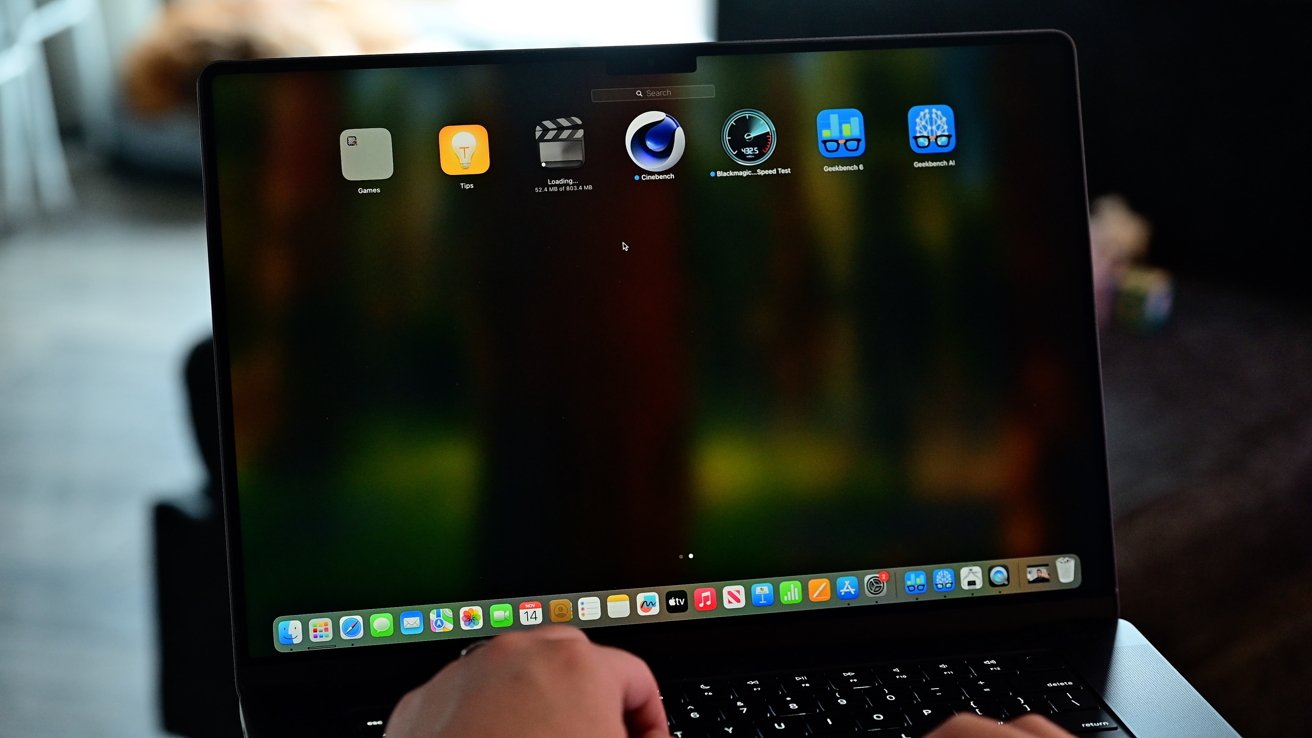
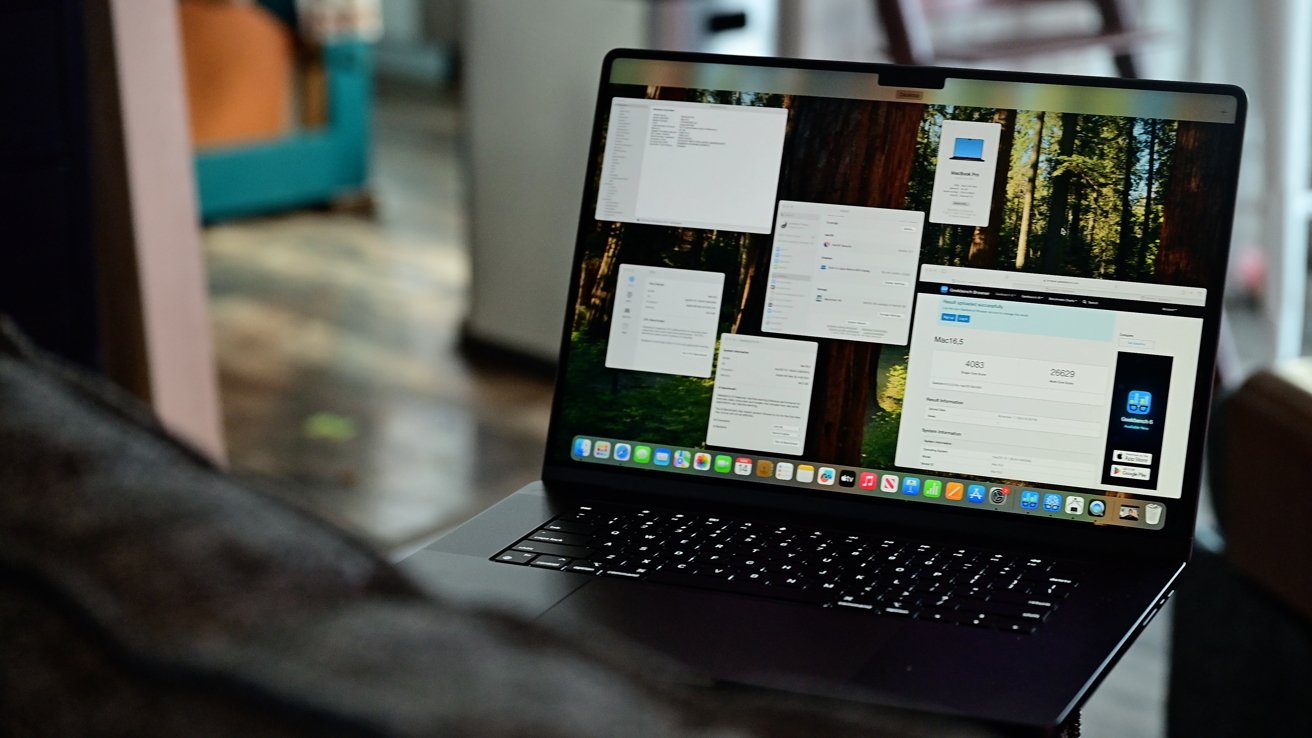

-m.jpg)






 Oliver Haslam
Oliver Haslam
 Thomas Sibilly
Thomas Sibilly
 Marko Zivkovic
Marko Zivkovic

 Wesley Hilliard
Wesley Hilliard
 Malcolm Owen
Malcolm Owen
 Andrew Orr
Andrew Orr
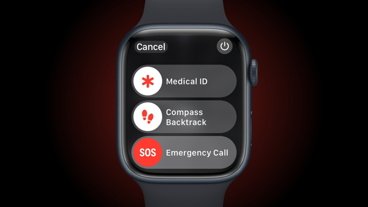


-m.jpg)






26 Comments
I have one at my company that I’m setting up right now. The 16 inch model. It is impressive. The battery life appears to be amazing, having only moved a couple percent after couple hours. On the “con” side has to be the weight. This thing is big and heavy. Not sure I would like traveling daily with this.
I see a lot of information about CPU/GPU performance. I wonder if anyone has any performance information on the built-in SSD? I have a very disk-intensive workflow and use a 2021 MBP (iw. Max 1, 32gb RAM) - will the 2024 MBP's SSD perform substantially better? If so - that and the matte display will be my excuse for getting the new model.
I’d like to know about the battery life and also the “lugability” of the machine…..
There is an error in the article. It states that the 14" MBP comes in M4 and M4 Pro variants. No mention of the M4 Max 14" MBP, so I did a quick double check and Apple does indeed still offer the Max chip in the 14" model.